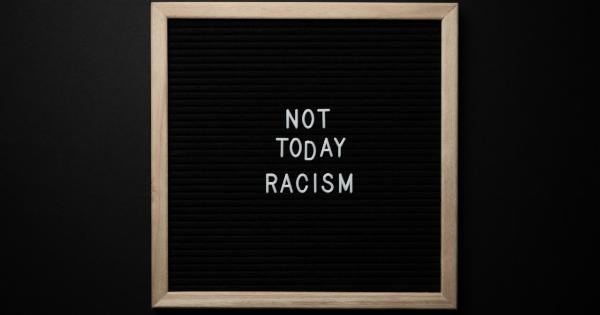Anxiety disorder is a mental health condition that affects millions of people worldwide. It is characterized by excessive worry, fear, and nervousness that can be overwhelming at times.
People with anxiety disorder may experience various physical and emotional symptoms such as palpitations, sweating, shaking, and panic attacks.
One of the triggers for anxiety disorder is the use of certain words and phrases. These words can evoke feelings of fear, uncertainty, and vulnerability in people with anxiety disorder.
In this article, we will explore the words that can trigger anxiety in people with anxiety disorder.
Fear-inducing Words
Fear is a natural response to danger and is necessary to protect oneself. However, people with anxiety disorder may experience fear in situations that are not life-threatening.
The use of fear-inducing words can trigger anxiety in people with anxiety disorder. These words include:.
- Fear
- Terror
- Horrific
- Dangerous
- Deadly
- Threatening
When these words are used, people with anxiety disorder may interpret them as an imminent threat to their safety, causing their anxiety to escalate.
Catastrophizing Language
Catastrophizing is a cognitive distortion where a person imagines the worst-case scenario in a situation. People with anxiety disorder may catastrophize events, leading to an increase in anxiety.
Words that can trigger catastrophic thinking in people with anxiety disorder include:.
- Never
- Always
- Worst
- Terrible
- Disaster
- Doomed
These words suggest that there is no hope for improvement, leading to a sense of helplessness and despair in people with anxiety disorder.
Negative Self-Talk Words
Self-talk is the internal dialogue that a person has with themselves. People with anxiety disorder may engage in negative self-talk, leading to a decrease in self-esteem and an increase in anxiety.
Words that can trigger negative self-talk in people with anxiety disorder include:.
- Stupid
- Worthless
- Hopeless
- Pathetic
- Failure
- Useless
These words can further exacerbate feelings of anxiety and cause people with anxiety disorder to doubt their abilities and worth.
Trigger Words for Specific Phobias
Specific phobias are intense and irrational fears of specific objects or situations. People with anxiety disorder may have specific phobias that can be triggered by certain words. Some examples of trigger words for specific phobias include:.
- Spider
- Snakes
- Height
- Clowns
- Blood
- Dentist
People with anxiety disorder may experience extreme fear and anxiety when exposed to their specific phobias, even if they are not in any immediate danger.
Words That Imply Judgment
People with anxiety disorder may also be very sensitive to judgment from others. The use of words that imply judgment can trigger anxiety in people with anxiety disorder. These words include:.
- Should
- Must
- Ought
- Have to
- Need to
- Expectation
These words can suggest that there is a right and wrong way to do things, leading to feelings of inadequacy and anxiety in people with anxiety disorder.
Words That Suggest Uncertainty
People with anxiety disorder may also have difficulty with uncertainty. The use of words that suggest uncertainty can trigger anxiety in people with anxiety disorder. These words include:.
- Maybe
- Perhaps
- Possibly
- Unknown
- Unsure
- Doubtful
These words can suggest that there is no definite answer, leading to feelings of unease and anxiety in people with anxiety disorder.
Conclusion
Words are powerful, and they can have a significant impact on people with anxiety disorder. It is important to be mindful of the words we use when interacting with people with anxiety disorder and to be aware of the words that may trigger their anxiety.
By using calming words and avoiding trigger words, we can support people with anxiety disorder and help them manage their anxiety.



























